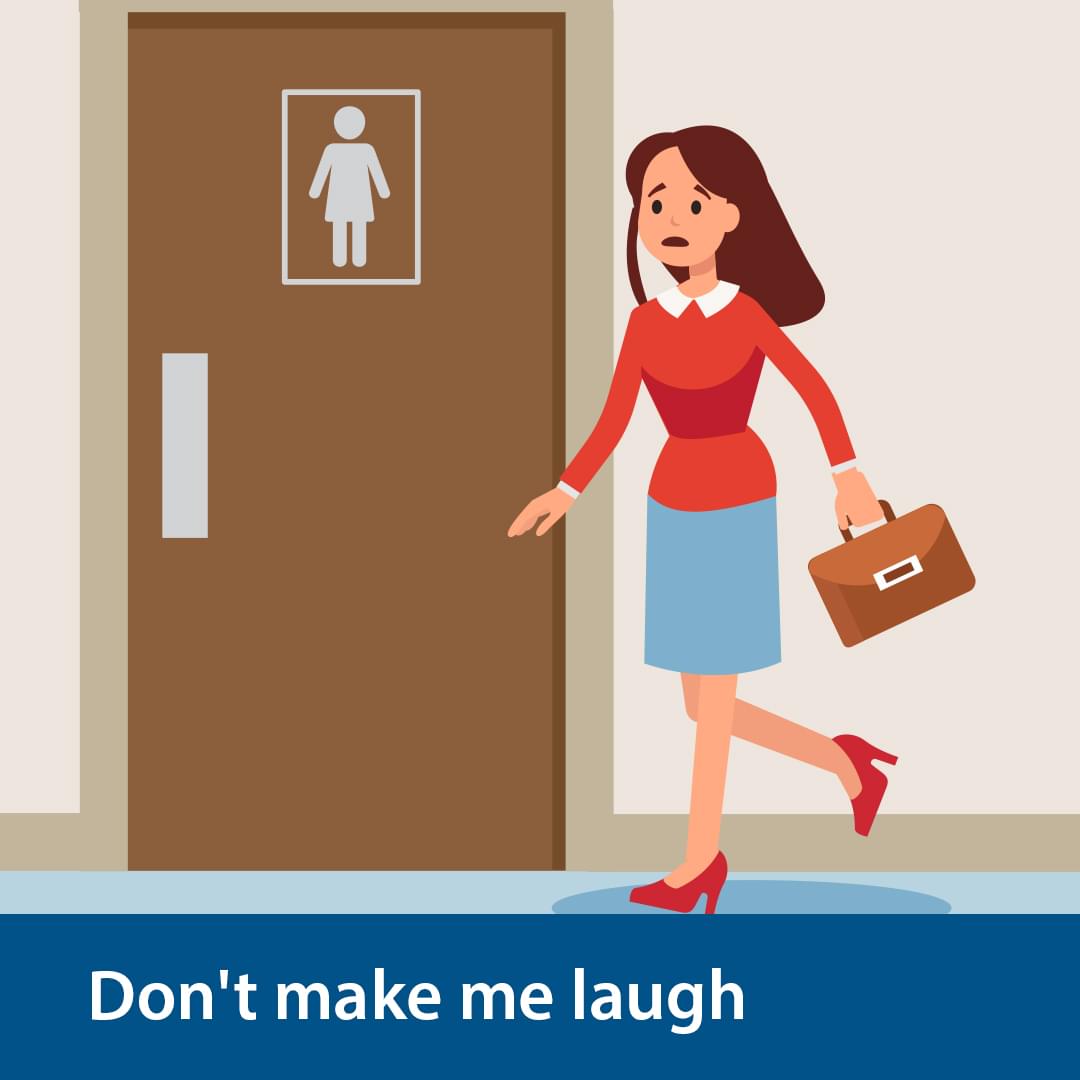Don’t Make Me Laugh!

 Have you ever felt like that – where, if you laugh, you might “have an accident”? Do you not always make it on time? Get the inside track on issues of incontinence (urological leaking) and the treatment options available. Dr. Stephen Johnson has been a Urologist at Adena Health System for over ten years and is passionate about making significant improvements in his patients’ quality of life.
Have you ever felt like that – where, if you laugh, you might “have an accident”? Do you not always make it on time? Get the inside track on issues of incontinence (urological leaking) and the treatment options available. Dr. Stephen Johnson has been a Urologist at Adena Health System for over ten years and is passionate about making significant improvements in his patients’ quality of life.
The Download on Incontinence
Urinary incontinence, or bladder leakage, occurs when the muscles and nerves around the bladder experience control issues in retaining urine. It is often associated with pregnancy, childbirth, pelvic surgery or menopause, but actually, urinary incontinence is common for both men and women – especially as they get older.
There are two main types of incontinence: urge and stress incontinence. With urge incontinence, patients experience a strong, sudden urge “to go” and often their bladder contracts and urine starts without control. This is a condition seen in both men and women. With stress incontinence, patients are predominantly women and experience leakage due to weakened muscles often from childbirth or certain surgeries.
There is a third, less common type of incontinence, called overflow incontinence. It occurs in men and women when their bladder gets so full it can no longer hold the urine in. If this occurs with any frequency, patients need to consult with their physician or our Adena Urology Departmentsince this type of incontinence could lead to other health issues, including kidney damage.
No matter the symptoms, patients should consult a physician if they are experiencing any incontinence. “I always stress to patients that although incontinence is common, it is not normal. There are a range of treatment options to help improve a patient’ issues,” says Dr. Johnson.
Surgery? Probably Not
At Adena, we take a conservative approach to incontinence treatment, working through the least invasive options to more progressive options, only if needed. First, we assess the patient. Although we often like to see patients in person, with the onset of the COVID-19 pandemic, we have become very skilled at virtual visits.
Once we understand the patient’s condition, we initially look at their diet and behavioral habits to see if making changes can help alleviate their incontinence. We often recommend patients see a pelvic floor health therapist to work with them on improving pelvic and bladder strength. Through exercise and behavior modification, therapists help patients retrain their bladder, increase core and pelvic strength, and eliminate dietary irritants that can factor into incontinence.
If a patient needs further help, there are medications we can prescribe that are very effective. Many of the newer medications have little or no side effects. And then, if needed, there are procedural options – some in-office and some require surgery.
Mainly, we want patients to realize there are many treatment options and that Adena Urology works with patients to tailor an individual treatment path for them. Incontinence left untreated can be terrible for patients. We’re here to help.
Bladder Tune-Up
Yes. Diet, behavior changes and exercise can all help. For diet, if people eliminate or avoid bladder irritants such as pop, tea, coffee, carbonated drinks, alcohol, sugary, fruit flavored or caffeinated drinks that’s a good start. Energy drinks are generally the worst of all of these and should be avoided if a person is experiencing leakage. Foods to avoid would be spicy foods, chocolate, tomato-based items, and citrus, like oranges, grapefruits, lemons and limes. Also, drinking plenty of water can help dilute urine and toxins in urine that might agitate the bladder.
Kegel exercises can help build strength in the pelvic floor. There are a number of guides and devices online. Just make sure you are doing the exercises correctly with reputable equipment. If a patient has questions, they can call our office.
Behavior changes beyond diet can also help. Training yourself to go at regular times and not hold your urine can be helpful.
Not Just Part of Getting Older
“We always tell our patients, although incontinence is very common, it is not normal and any signs of beginning or continual leaking should be checked out by a physician,” says Dr. Johnson. Some incontinence is normal after pregnancy (especially after vaginal delivery). This is often temporary and pelvic floor strengthening is important. Any significant or profound incontinence should always be evaluated as it could indicate an injury to the urethral sphincter (intrinsic sphincter deficiency). This is a rare complication in the United States, but more common in 3rd world countries.
If you’re experiencing regular incontinence, for either men or women, don’t just “sweep it under the rug,” thinking it’s part of aging. Call your primary health physician or call our Adena Urology Department. Incontinence can be treated and there’s no reason to live with the worry and discomfort incontinence can bring.


Quality of Adena Pike Medical Center’s acute stroke ready care recognized with certification renewal